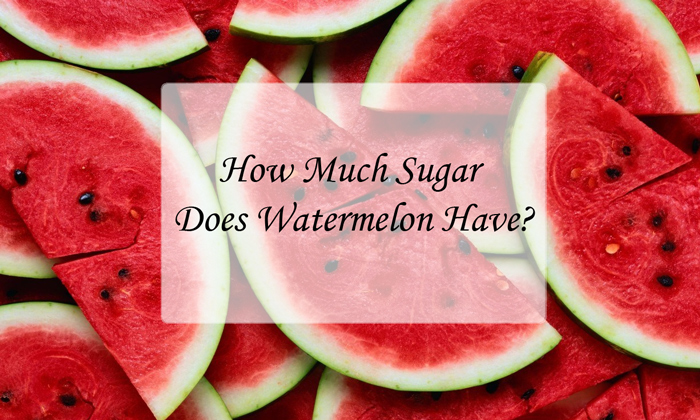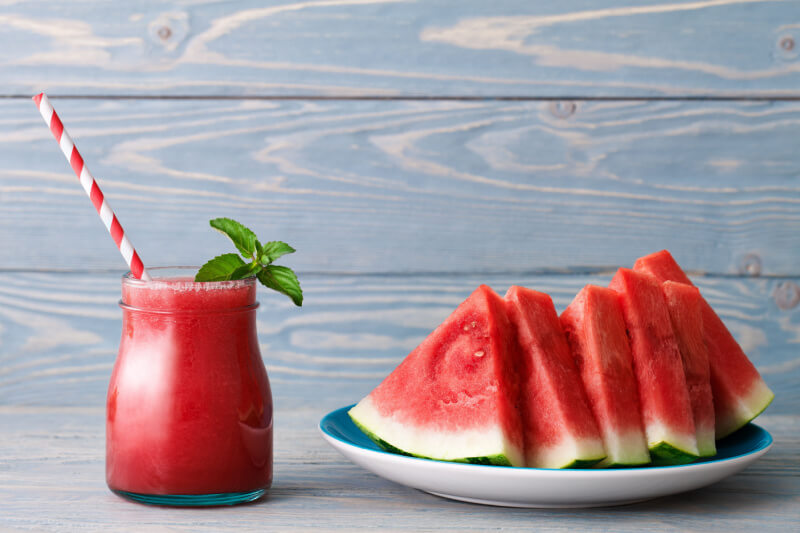Decoding Watermelon’s Sweetness: A Guide to Understanding Its Sugar Content
Watermelon, that quintessential summer treat, is often enjoyed for its refreshing taste and hydrating properties. But, you know what?, beyond its juicy goodness, it’s actually packed with quite a few nutrients. We’re talking vitamins A and C, potassium, and even some fiber. Honestly, it’s a pretty healthy snack! But, like most fruits, watermelon does contain natural sugars, which is why we’re here to explore just how much sugar is in a serving of watermelon and what that actually means for you.
Estimating Sugar Content: A Slice of Knowledge
So, you’re curious about “how much sugar in a serving of watermelon”? Let’s break it down. What exactly counts as a “serving,” anyway? A good rule of thumb is about 1 cup of diced watermelon. Think of it as a generous handful or a small bowlful. But here’s the thing: when we talk about sugar content, we’re usually measuring it in grams.
Now, the tricky part: there’s no single, definitive answer. You see, the amount of sugar can wiggle a bit depending on a few things. The variety of watermelon plays a role, and so does how ripe it is. A perfectly ripe watermelon, bursting with flavor, will naturally have a bit more sugar than one that’s not quite there yet. Honestly, it’s kinda like how some apples are sweeter than others, even within the same type.
Therefore, instead of giving you one specific number, it’s more accurate to think of it as a range. You’ll typically find that a 1-cup serving of watermelon contains somewhere between 9 to 13 grams of sugar. Bear in mind, this is just an average. Is it a lot? Is it a little? We’ll compare it to other fruits later, but for now, just keep that range in mind. And remember, while it is sugar, it’s also coming with a whole bunch of vitamins and hydration, which is definitely a plus!
Watermelon Varieties: Does It Change the Sweetness?
You know, watermelons aren’t just watermelons anymore. There’s a whole world of varieties out there! We’ve got the seedless ones, which are super convenient, personal watermelons – perfect for a single serving, and even yellow watermelons, which are a fun twist. So, does the type of watermelon affect how much sugar in a serving of watermelon you’re getting?
Generally, the differences in sugar levels between varieties are pretty subtle. Seedless watermelons, for example, might have a slightly different sugar profile than their seeded counterparts, but it’s usually not a huge difference that you’d notice. Personal watermelons are bred for size, not necessarily sugar content, so they should be close to a regular one when considering how much sugar in a serving of watermelon. And what about yellow watermelons? Their sweetness is similar, the only difference is the color! Honestly, ripeness plays a much bigger role. A perfectly ripe watermelon, regardless of the variety, will always taste sweeter than one that was picked too early. Remember that ripeness significantly impacts how much sugar in a serving of watermelon ends up being.
But here’s the thing: growing conditions can be a factor. Watermelons grown in sunny climates with consistent watering tend to develop more natural sugars. Think of it like this: more sunshine equals more sweetness. Farmers, in many cases, are focused on cultivating the best yield, which influences how much sugar is developed in the fruit. Ultimately, focusing on getting a ripe watermelon is key. Look for a dull rind, a yellow spot where it rested on the ground, and a hollow sound when you thump it. Those are the real indicators of sweetness, more so than the variety itself when figuring out how much sugar in a serving of watermelon there will be.
How Does Watermelon Stack Up Against Other Fruits?
When we think about sweetness, it’s natural to wonder: “how much sugar in a serving of watermelon” compared to other fruits? You know, the ones we often reach for. Let’s get real: watermelon isn’t the sugar bomb some might think it is.
Apples, bananas, and grapes are popular choices, but they pack a bit more sugar than watermelon. An average apple contains around 19 grams of sugar. A banana? Closer to 14 grams. Grapes can soar up to 23 grams per cup! Now, think about watermelon. A cup of diced watermelon usually clocks in at around 9-10 grams of sugar. It is important to understand how much sugar in a serving of watermelon to keep a balanced diet. See? Quite a difference. While those fruits offer their own nutritional perks, watermelon holds its own as a lighter, more hydrating option.
So, why does watermelon taste so refreshingly sweet if it’s lower in sugar? Honestly, it’s a bit of an illusion. The high water content in watermelon intensifies the sweetness, making it taste sweeter than it actually is. Plus, when you compare “how much sugar in a serving of watermelon” with, say, a handful of grapes, you might be surprised! A big part of enjoying fruit is understanding what you’re getting, and watermelon is a winner if you’re watching your sugar intake without sacrificing that sweet satisfaction. It’s about making informed choices and enjoying the natural goodness each fruit brings to the table.
Beyond the Numbers: What Really Makes Watermelon Taste Sweet?
So, you’re wondering “how much sugar in a serving of watermelon” truly matters? Well, it’s not just about the grams! Several factors influence how sweet a watermelon tastes, even if the actual sugar content is the same. Think of it like this: two people can taste the same dish and have completely different opinions on its sweetness.
Temperature plays a big role. A chilled watermelon will often taste sweeter than one at room temperature. Why? Because cold temperatures can suppress our perception of bitterness, making the sweetness stand out more. Ever notice how ice cream tastes sweeter when it’s super cold? It’s a similar effect! Also, what you eat with the watermelon can change things. Salty snacks, for instance, can heighten the perception of sweetness, making the watermelon seem even more delicious. It’s all about contrast.
Individual taste preferences are the ultimate wild card. Some people are simply more sensitive to sweet tastes than others. Someone who rarely eats sugary foods might find watermelon incredibly sweet, while someone accustomed to sugary drinks might perceive it as less so. Ultimately, sweetness is a subjective experience. Also, different parts of the tongue are more sensitive to certain tastes! What matters most is enjoying the watermelon and how it fits into your personal dietary needs and preferences, regardless of the exact amount of sugar it contains.
Savoring Watermelon Wisely: How to Make it Part of Your Day
Watermelon is a treat, and you can definitely include it in a balanced eating plan. Think of it like this: how much sugar in a serving of watermelon impacts you depends on what else you’re eating. You know what? Pairing watermelon with some protein or healthy fats can actually slow down how quickly your body absorbs the sugar. This keeps your blood sugar levels more stable, preventing those energy spikes and crashes.
Want some tasty ideas? Toss diced watermelon into a salad with feta cheese and mint for a refreshing and savory-sweet combo. The feta provides protein and fat, balancing out the sugar in the watermelon. Or, blend it into a smoothie with Greek yogurt and a handful of spinach. The yogurt adds protein, and the spinach sneaks in some extra nutrients without changing the flavor too much. Honestly, a simple snack of watermelon slices with a small handful of nuts is also a great choice.
Don’t underestimate the power of portion control, either. While watermelon is relatively low in sugar compared to some fruits, it still contains sugar. Being mindful of how much sugar in a serving of watermelon you are eating is key. Enjoy a reasonable portion, and you can reap the hydrating and nutritious benefits without overloading on sugar. If you’re watching your carbohydrate intake, consider tracking how much sugar in a serving of watermelon you consume, and adjust the rest of your meals accordingly. It’s all about finding that sweet spot – pardon the pun! Just keep experimenting to see what works best for your body and your taste buds.
Beyond Sweetness: Watermelon’s Nutritional Punch
Watermelon is more than just a refreshing treat; it’s a powerhouse of nutrients. Did you know that a serving of watermelon offers a good dose of vitamins A and C? These vitamins are crucial for maintaining healthy skin and boosting your immune system. And honestly, who couldn’t use a little immune boost?
But the benefits don’t stop there. Watermelon is packed with antioxidants, including lycopene, which has been linked to a reduced risk of certain diseases. Plus, let’s not forget about hydration. Given that it’s about 92% water, eating watermelon can help you stay hydrated, especially during those hot summer months. How much sugar in a serving of watermelon is only a small part of the story.
And here’s something interesting: watermelon also contains fiber, although not a huge amount. Fiber is essential for digestive health, and every little bit counts, right? So, when you’re enjoying that juicy slice of watermelon, remember that you’re not just satisfying your sweet tooth; you’re also giving your body a bunch of essential nutrients. Now, isn’t that a sweet deal?
Making Smart Choices About Eating Fruit
So, you’re thinking about how much sugar in a serving of watermelon matters, right? It’s all about making smart choices that fit your needs. Remember, fruit is a fantastic source of vitamins and nutrients, and it should be enjoyed as part of a well-rounded diet. It’s about finding the right balance. How much sugar in a serving of watermelon should you be aiming for? That depends!
Think of fruit consumption as a personalized journey. What works for one person might not work for another. For some, monitoring sugar intake is crucial due to health conditions like diabetes. For others, it’s about managing overall calorie intake for weight management. Watermelon, with its refreshing taste and hydrating properties, can absolutely be part of the plan. Just be mindful of portion sizes and consider how it fits into your daily carbohydrate goals. It is good to know how much sugar in a serving of watermelon for a healthy diet.
If you’re unsure about the best approach for you, consider chatting with a registered dietitian or a healthcare professional. They can provide personalized guidance based on your individual needs and health status. They can also help you understand how much sugar in a serving of watermelon can effectively contribute to your health, and offer tailored advice on incorporating watermelon, and other fruits, into your diet in a way that supports your overall well-being. Remember, it’s about informed choices and enjoying the sweetness of life in a healthy way. After all, isn’t that what we all want?




